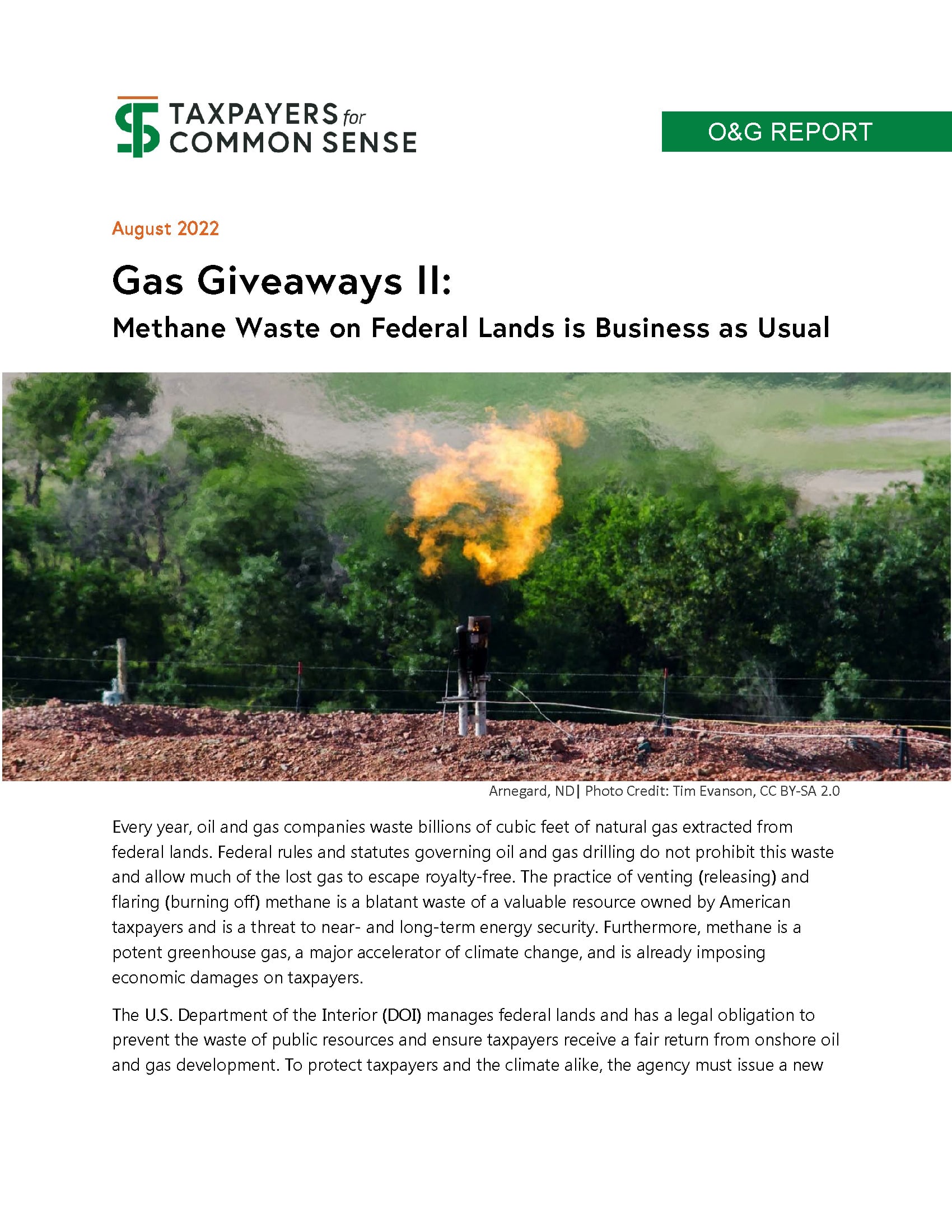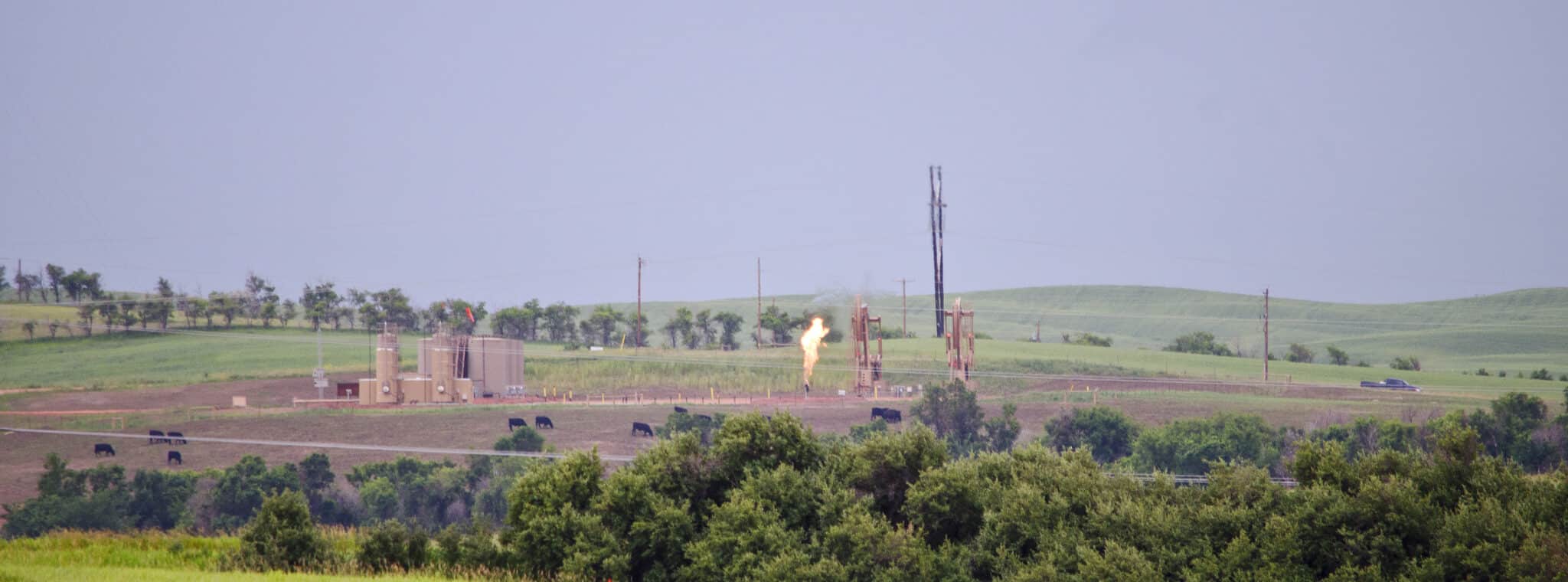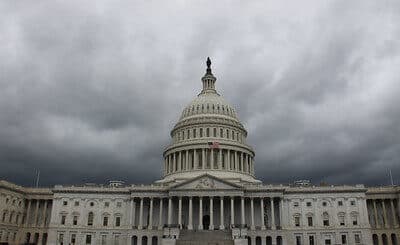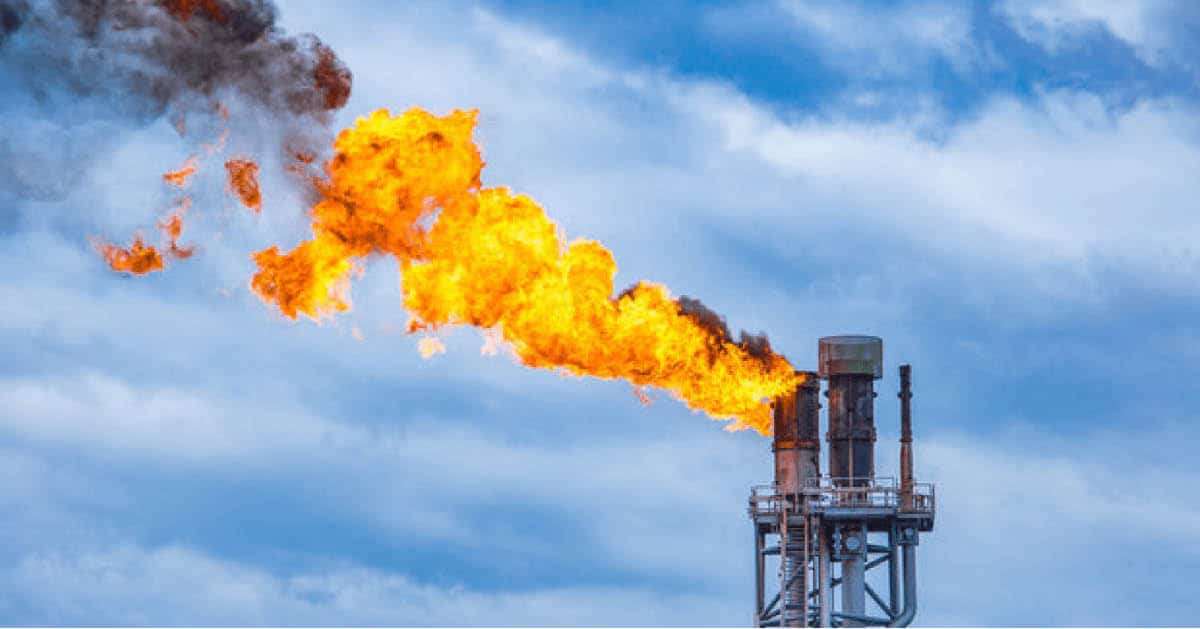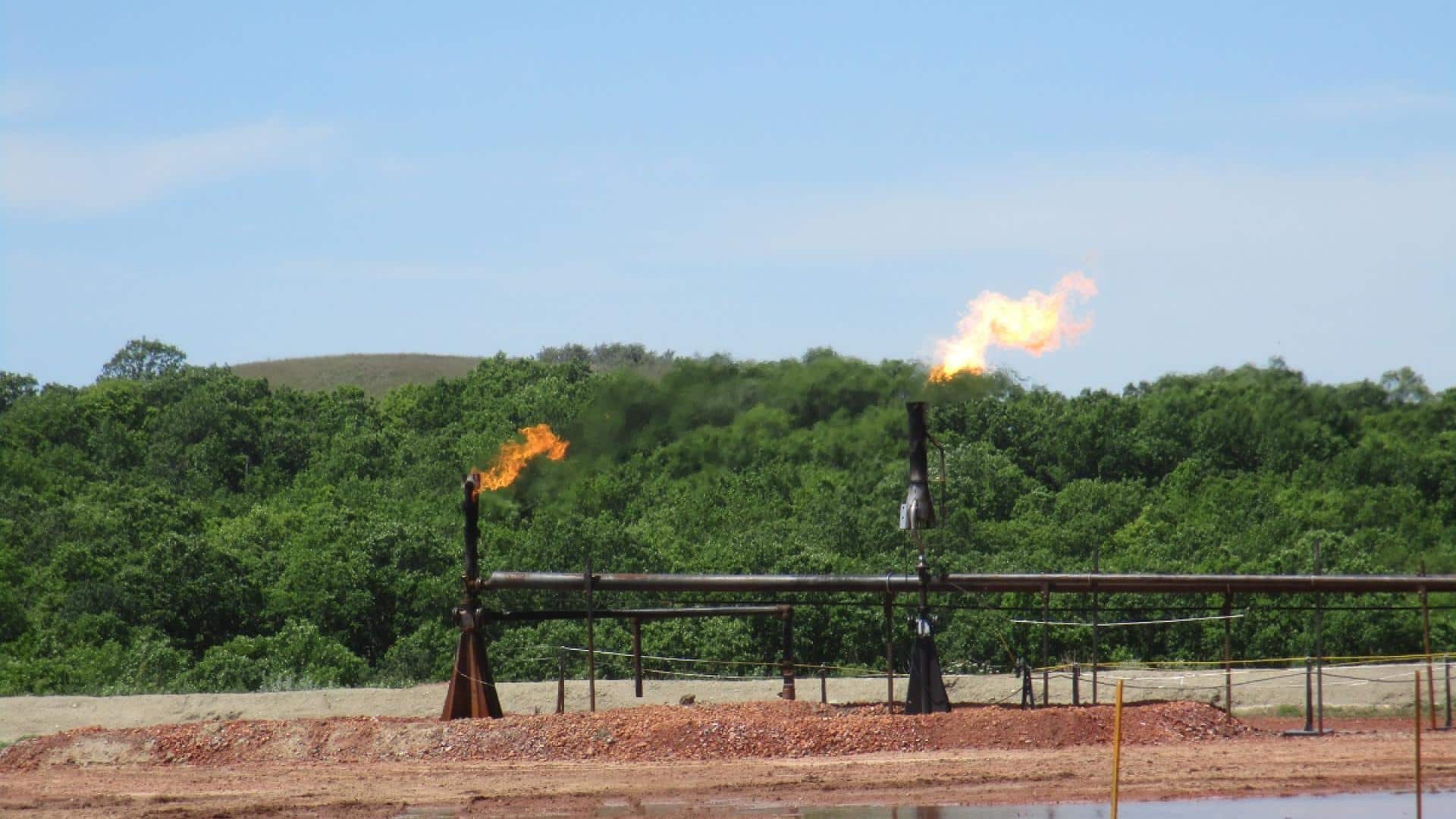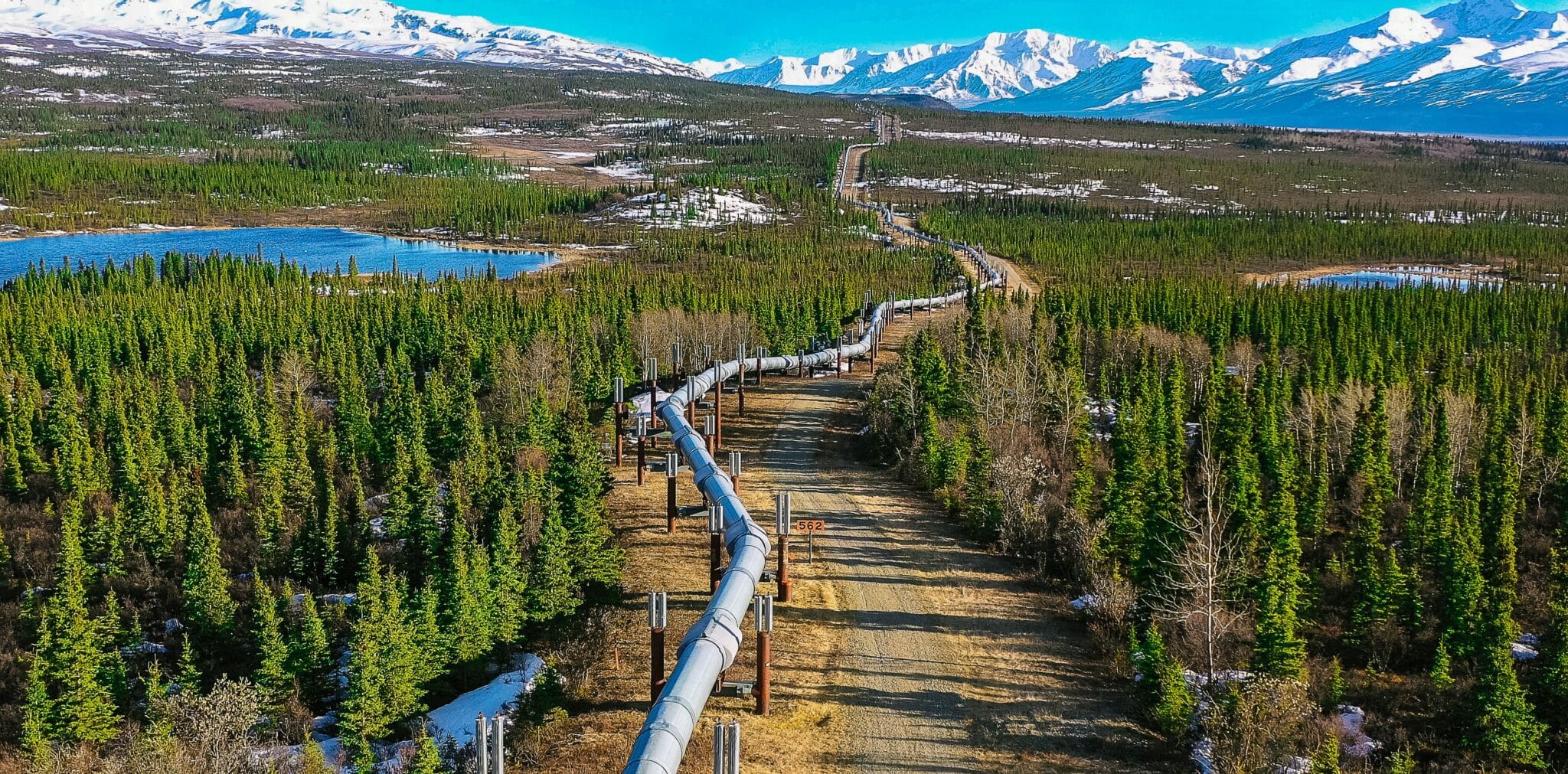Deep Dive: Methane
Reckless oil and gas drilling practices on federal lands waste billions of cubic feet of valuable methane every year, hurting taxpayers, consumers, and the climate.
Methane is the largest component of unprocessed natural gas. When companies drill for oil and natural gas, methane is released directly into the atmosphere through purposeful venting (when natural gas is released directly into the atmosphere) and flaring (when natural gas is burned), and accidental leakage. These practices keep valuable natural gas from consumers, contribute to the growing taxpayer costs of climate change, and, when losses occur on federal land, lower revenue for state and federal taxpayers.
Existing federal oil and gas management practices allow producers to leak, vent, and flare natural gas at an alarming rate. Every year, oil and gas companies waste billions of cubic feet of taxpayer-owned natural gas extracted from federal lands. Between 2012 and 2021, 300 billion cubic feet of natural gas, worth an estimated value of $949 million, were lost on federal lands. Much of this gas was lost without paying royalties, costing taxpayers millions in lost revenue each year.
Methane also carries a significant pollution liability. Methane is a greenhouse gas that has a global warming potential 80 times higher than carbon dioxide for the first 20 years it is in the atmosphere. Oil and natural gas systems are the largest industrial source of methane emissions in the United States, accounting for one-third of total emissions.
New rules from the Environmental Protect Agency (EPA) and Bureau of Land Management (BLM) seek to protect taxpayers and the environment by limiting methane emissions from oil and gas development.
The EPA recently finalized a new rule on performance standards and emissions guidelines for the oil and gas industry and the BLM finalized a new rule to cut down methane waste from oil and gas operators on federal land. These rules – and other ongoing actions in Congress and the Administration, like the Methane Emissions Reduction Program (MERP) – mark a significant update to methane emissions policy in the United States.
Limiting the release of methane during oil and gas production will help prevent the waste of valuable natural gas, ensure taxpayers a fair return from federally-owned resources, and protect taxpayers from long term liabilities.
Find out about methane emissions from oil and gas development in your state:
For more information on lost gas on federal and nonfederal lands, check out additional resources below:
- New EPA Rule Aims to Ratchet Down on Methane Waste: The EPA’s final rule will establish performance standards and methane emissions guidelines for new and existing sources.
- TCS Comments to the EPA on the Greenhouse Gas Reporting Rule: TCS submitted the comments to the Environmental Protection Agency regarding their proposed rule, “Greenhouse Gas Reporting Rule: Revisions and Confidentiality Determinations for Petroleum and Gas Systems.”
- Capturing methane would be a win for the state’s bottom line, and for the environment: TCS wrote a joint op-ed with the Louisiana Budget Project on the fiscal case for reining in methane waste from oil and gas operations.
- TCS Comments on EPA Supplemental Proposal on Methane: TCS provided comments to the EPA on the supplemental notice of proposed rulemaking, “Standards of Performance for New, Reconstructed, and Modified Sources and Emissions Guidelines for Existing Sources: Oil and Natural Gas Sector Climate Review.”
- New Study Quantifies Natural Gas Wasted on U.S. Public and Tribal Lands: An economic analysis commissioned by TCS and the Environmental Defense Fund on lost methane on U.S. public and tribal lands in 2019.
- Taxpayer and Climate Costs of Methane Emissions Fact Sheet: A fact sheet on the taxpayer costs and climate impacts of lost methane.
- Comments on BLM Proposed Methane Rule: TCS provided comments to the Bureau of Land Management (BLM) on the proposed rule, “Waste Prevention, Production Subject to Royalties, and Resource Conservation.”
- Budget Watchdog, All Federal — Ep. 29: Venting & Flaring: A podcast episode on how oil and gas companies waste billions of cubic feet of natural gas extracted from federal lands, royalty-free, every year by just venting it or burning it off.
- Gas Giveaways II: Methane Waste on Federal Lands is Business as Usual: A report on how wasted natural gas, the largest component of which is the highly potent greenhouse methane gas, continues to be leaked, vented, and flared from oil and gas operations on federal land.
Want to know more about methane?
We’ve been talking about this topic for a long time. Explore our deep archive of material below.

